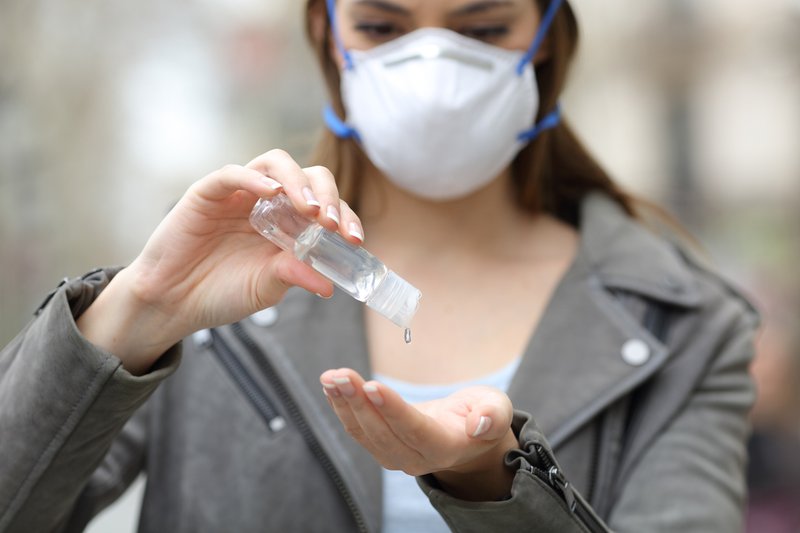How to tell if your hand sanitiser has the correct ingredients
Updated | By Press release
Dr Francois Olivier shares a guide on what ingredients you need to look for when shopping for a a hand sanitiser.

There has been an increase in the sale of hand sanitizers since the start of the coronavirus outbreak. Government officials have encouraged people to use hand sanitizers to curb the spread of the virus.
However, health officials have warned that not all sanitizers should be used.
Consumers must be cognisant of the ingredients of their chosen hand sanitiser to make sure that it does not contain products which can be harmful to their health.
The outbreak of the COVID-19 pandemic increased the demand for hand sanitisers dramatically and, other than the existing manufacturers, also saw a hoard of new participants enter the market.
Alcohol destroys most well-known viruses which explains why hand sanitisers need to consist of at least 60% alcohol to have any measure of effectiveness. The potential problem is that many hand sanitisers do not specify what kind of alcohol is used in manufacturing the product. Hence the risk is that a product may contain harmful ingredients, for instance methanol. Hand sanitisers’ ingredients are mostly indicated on the packaging, as denatured alcohol or a percentage of alcohol contents, e.g. “70% alcohol” and does not specify the underlying composition.
Denatured alcohol, sometimes also referred to as methylated spirits, is pure alcohol that is mixed with another ingredient, for instance methanol. This is to prohibit human consumption. Traditionally denatured alcohol is also excluded from sin tax.
Methanol is toxic
Dr Francois Olivier, chief medical officer of hand sanitiser and biosecurity products manufacturer Envirospec, says methanol is indeed part of the alcohol family, although its metabolic end-product in the body is formaldehyde which has a toxic effect on the brain, eye nerves, liver and many other organs and can cause hallucinations and blindness.
“Absorption can be via the skin or inhalation and when it is drunk it can lead to very serious side effects and even death. The drying out of skin and skin irritations also appear in many instances with a severe, allergic type of reaction. No government or organisation has ever approved the use of methanol in hand sanitisers.”
According to the World Health Organisation (WHO) ethanol or isopropyl alcohol should be used as the alcohol components in hand sanitisers.
Hand sanitisers were initially not developed for excessive use and problems like dry hands and the cracking and decolouration of the skin occurs when the product is not developed and formulated for repeated use. Other than the alcohol base of ethanol and isopropyl, it is also essential that products include good quality hydrogen peroxide (which serves as a mild antiseptic) and glycerine (for skin protection).
Lower shop prices for hand sanitisers is normally an indication that it does not contain the prescribed high levels of ethanol and isopropyl and possibly also is composed of poorer-quality ingredients.
Envirospec hand sanitisers contain 80% organic ethanol
Corné Liebenberg, marketing director at Laeveld Agrochem – part of Envirospec’s distribution network – says: “We are dealing with a deadly virus and it is of the utmost importance that the measures taken by people, such as the hand sanitisers they acquire, be as effective as possible in protecting against COVID-19. So, trying to save money by buying sub-standard, inefficient products serves no purpose at all.”
Olivier says their Envirospec hand sanitisers, according to the latest WHO recommendations, have an alcohol content of 80% organic ethanol, and are produced by Illovo, South Africa's leading organic alcohol manufacturer.
The group has also made available a complete Material Safety Data Sheet on its website where consumers can see what ingredients (and their composition) the product consists of.
At least for the immediate future, hand sanitisers will be part of our everyday lives; whether it is the bottle in your car or kitchen, or the concoction sprayed on your hands every time you enter a store. Hence, it remains the responsibility of every consumer to be aware of the ingredients and their functioning.
READ: Bali's miracle: turning wine into hand sanitiser
Pree release by Brand Etal.
Image courtesy of iStock/ @AntonioGuillem
Show's Stories
-
Proof that children mirror what they see adults doing
This kid tries to drink water like a tequila shot...
The Workzone with Alex Jay 1 year, 9 months ago -
If you fail your driver's exam, don't do what this man did
A man who failed his driver's exam decided to hire a 'body double' to at...
The Workzone with Alex Jay 1 year, 9 months ago